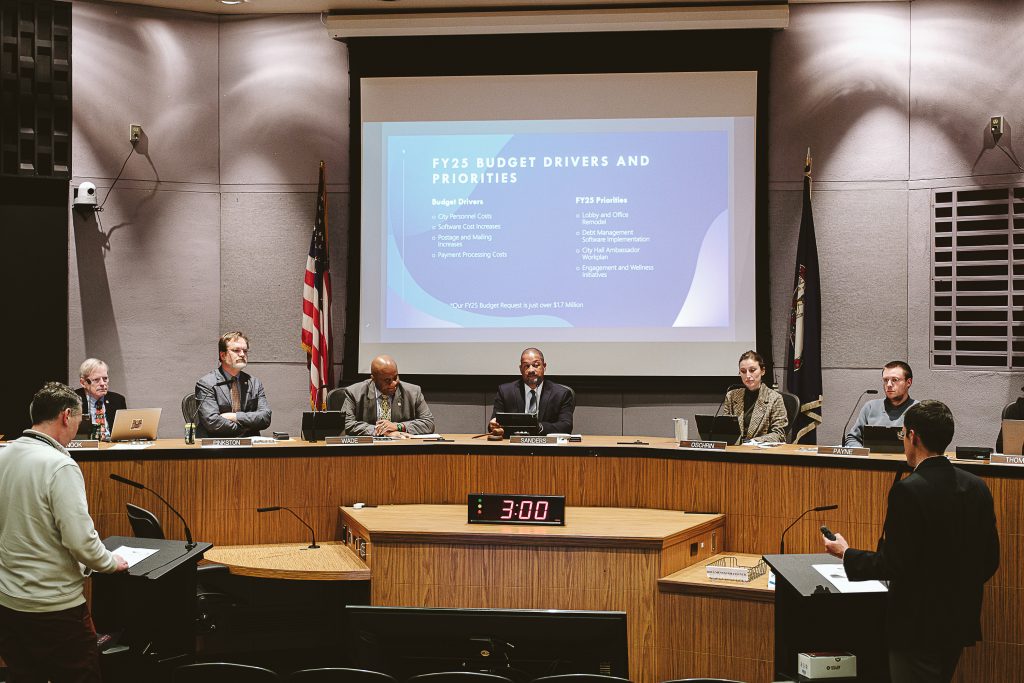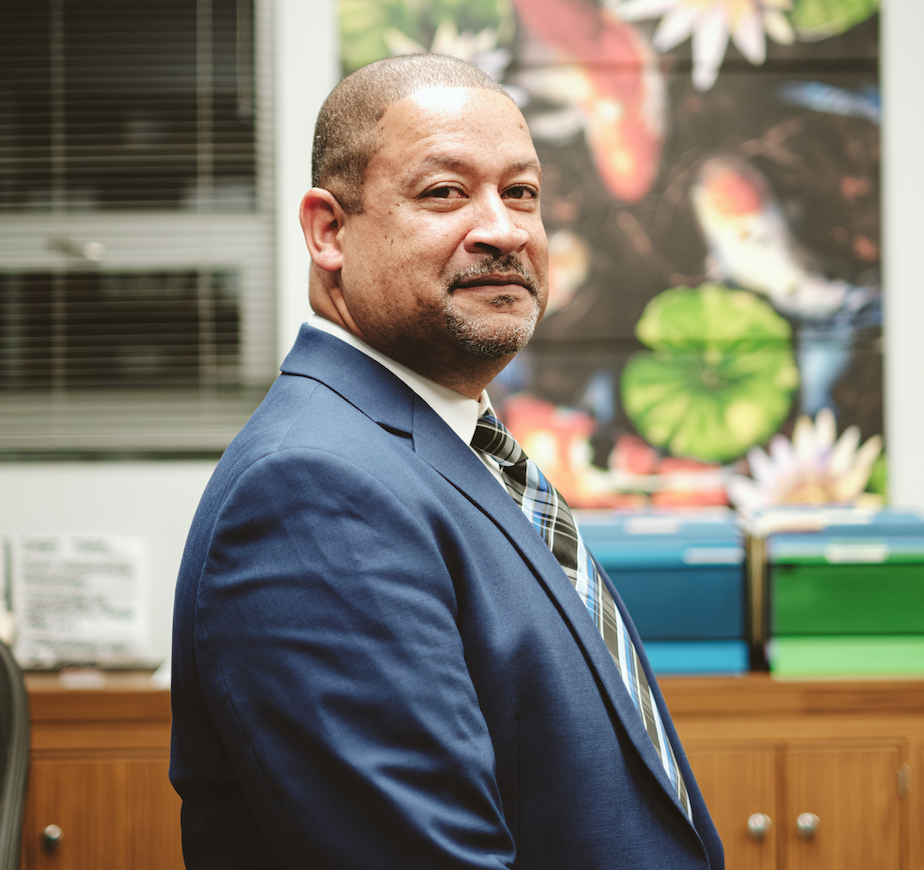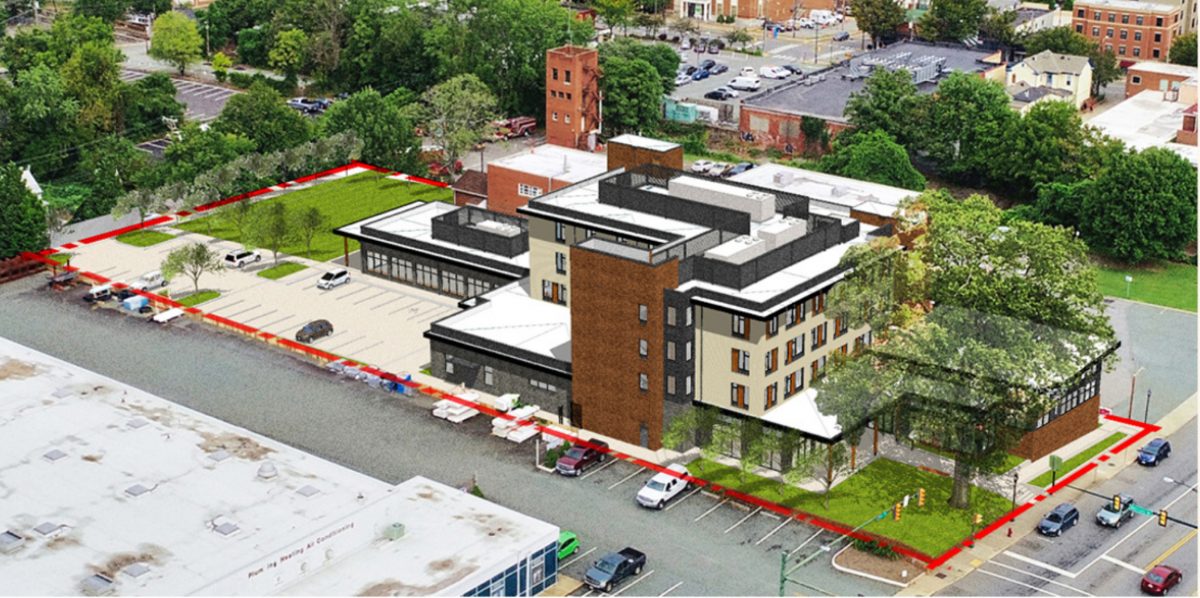It’s been just over a year since tents popped up in Market Street Park, and at the October 21 City Council meeting, City Manager Sam Sanders presented an array of proposals to better support not only the area’s unhoused population, but the entire community. Potential projects and services include the creation of a year-round, low-barrier shelter; the launch of a street outreach initiative; and public restrooms on the Downtown Mall.
While cold-weather shelter is available through nonprofit organizations like People and Congregations Engaged in Ministry, there is no year-round, low-barrier shelter in the Charlottesville area. At present, the Salvation Army is the only organization providing year-round shelter services for unhoused people, but space is limited, and it is considered a high-barrier shelter due to requirements for participants, including random drug and alcohol tests.
A rising unhoused population has resulted in an increased demand for shelter beds, exceeding the capacity available at PACEM and the Salvation Army. Estimates for the number of unhoused people in Charlottesville and surrounding areas vary, with a 2023 Point-in-Time count identifying 191 unhoused individuals, though this number is not considered comprehensive.
“I’m standing in front of you [City Council] today saying to you that we can do all the things that are on this list if you are so inclined, but again, reminding you that that means other things won’t necessarily be able to get done or become a little more challenging for us to try to do, and we’ll have to be creative and or wait on some other things,” said Sanders at the council meeting. “Ultimately, this is about defining and taking some bold action. But I also want to point out that this is really about setting new standards and managing expectations. We can’t do everything.”

Under the plan introduced by Sanders, the city would support the Charlottesville Salvation Army in the conversion of its Cherry Avenue thrift store into a low-barrier shelter, as well as the renovation and expansion of its existing high-barrier shelter on Ridge Street. Upon completion, the low-barrier shelter would have a 50-bed capacity, and the Ridge Street Center of Hope would have more than 100 beds.
Part of Sanders’ proposal would include a major contribution to the Salvation Army’s capital campaign, with $1.25 million currently slated for the thrift store conversion. The city manager also suggested an annual contribution of $200,000 for five years to the nonprofit to help offset the cost of closing the store, with an additional $500,000 each year to support the shelter’s operation.
No organization or collective of nonprofits has committed to running the low-barrier shelter yet, though the Salvation Army indicated it would be willing to handle operations dependent on future conversations with the city.
Most of the money for the shelter and other suggested initiatives would come from American Rescue Plan funds, interest on that money, and an anticipated budget surplus, according to Sanders. The city has until the end of the year to allocate ARP funds, otherwise they will be returned to the federal government.
Other recommendations from Sanders included increasing annual capacity support for the Blue Ridge Area Coalition for the Homeless, filling an already funded homeless services coordinator position. Several pilot initiatives were also proposed.

“We need restrooms on the Mall that are available, period. And we know that,” said Sanders. He, along with other city officials, have been testing public restroom options, and suggested obtaining three Green Flush Restrooms. The units can be moved with a forklift and serviced like a standard portable toilet, but do not require utilities to be flushable.
“I don’t wanna be here five years from now and not know that we’ve solved this bathroom problem,” Sanders said. “No one wants it next to them, but that’s what they say about everything.”
Increasing city official presence, especially on and around the Mall, has been a recurrent topic at City Council meetings. As part of that effort, Sanders recommended two dedicated street outreach personnel be introduced on a two-year trial basis through existing grant funding. The creation of these positions would also support the work and capacity of BRACH, which is the continuum of care coordinator for homeless services for not only Charlottesville, but the entire region.
According to Sanders, BRACH’s staff is currently “one and a half people.”
For transitional housing, the city manager suggested purchasing six pallet homes, which are being used for the creation of micro communities around the country. On that topic, Sanders also announced that “the reason you haven’t heard from me on the Avon Levy site, … [is] there is no plan for that site because there’s no need for us to have a plan for that site just yet. Once Premier Circle actually comes live, the shelter is in place, the Center of Hope is up and running, we will know a lot more about what’s going on, and then we can actually tailor that project to the needs that we may have.”
City Council is expected to allocate American Rescue Plan funds and advance other projects by the end of the month.
